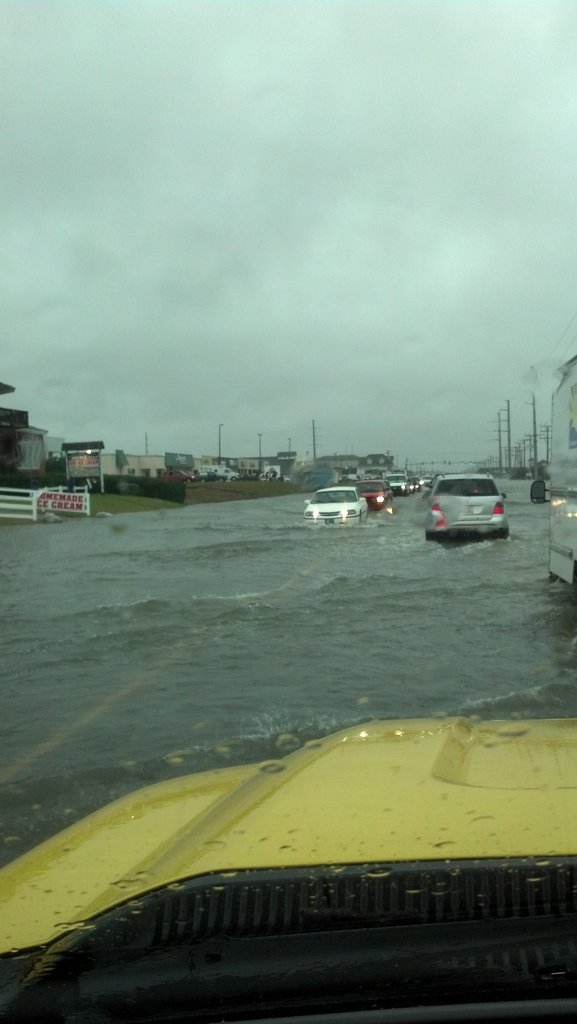By Susan Williams | Director of Development
“Americans are already feeling the effects of climate change…particularly extreme weather events, but also sea level rise.” That’s just one impact that a speaker discussed at an EESI briefing, thanks in part to your gift to EESI through Global Giving. The scientist also highlighted the opportunities to respond – through mitigation measures and through increased resiliency.
Temperatures in the United States are now 1.3 to 1.9 degrees Fahrenheit warmer than they were in 1895, with most of the increase happening in the last 44 years. Sea levels are rising, rainfall patterns are changing, summers are getting longer and hotter, winters are becoming shorter and warmer, and summer sea ice in Alaska is receding. The implications of these changes are considerable, threatening communities with relocation, increasing drastic flood events, extending the wildfire season, and increasing the severity of droughts.
The newly released National Climate Assessment (NCA) explains the impacts across our country. It is the most comprehensive examination of peer-reviewed science on climate change impacts in the United States ever produced. You are helping EESI to highlight the findings and help spur action on climate with your support through Global Giving. Yesterday, EESI held one of our highly regarded, influential Capitol Hill briefings highlighting the findings of the National Climate Assessment, educating Congress and policymakers about climate impacts across the country, thanks in part to you.
With your continued support, EESI will also hold briefings on climate impacts in the Northeast, Midwest, and Southeast. You’ve already helped us carry out a briefing on climate impacts in the Southwest—how it is getting hotter and drier.
Again, we’re not just sharing the impacts—but also what we can do about them, such as making our communities, buildings, and infrastructure more resilient to extreme weather. For instance, your support helped us organize a briefing on Resilient Buildings.
Homes, buildings and other infrastructure have been damaged or completely destroyed by powerful hurricanes, tornadoes and floods in recent years. In our Resilient Buildings briefing, experts in architecture and building science, risk management, and energy policy showcased pending legislation, community initiatives, and tangible strategies and solutions for improving the resilience of our buildings.
One of our speakers, Jake Oster, Deputy Chief of Staff and Legislative Director for Rep. Peter Welch (D-VT), said that increasing energy efficiency in buildings is one of the best ways to address climate change and lower electricity bills. He said there is broad and bipartisan support for energy efficiency efforts. He noted that the Shaheen-Portman energy efficiency bill was reintroduced in the Senate the day of the briefing, and that the Better Buildings Act had passed the House with unanimous support.
Another speaker noted that when hurricane Ike hit Texas, the homes that were built to Fortified for Safer Living standards were among the last homes still standing in Galveston. But these homes were no longer in a community, as all the buildings around them had been destroyed. Federal incentives to promote resiliency could hopefully assist more homeowners in making their homes more resilient. With your continued support, we will keep working on that—and much more.
You are indeed making a difference on climate change with your Global Giving gift to EESI! Thanks again.
Links:
Project reports on GlobalGiving are posted directly to globalgiving.org by Project Leaders as they are completed, generally every 3-4 months. To protect the integrity of these documents, GlobalGiving does not alter them; therefore you may find some language or formatting issues.
If you donate to this project or have donated to this project, you can receive an email when this project posts a report. You can also subscribe for reports without donating.
Support this important cause by creating a personalized fundraising page.
Start a Fundraiser